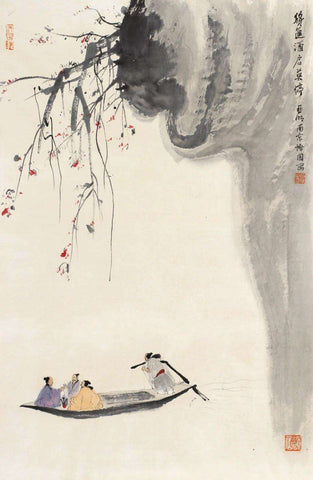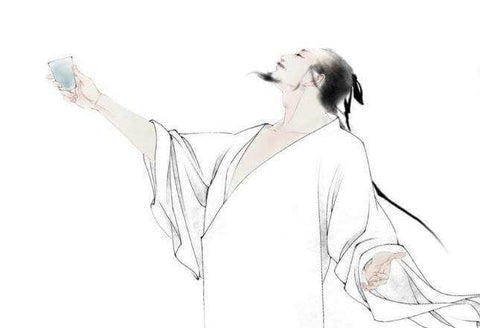Invitation to Wine
Li Bai(701-762)
Do you not see the Yellow River come from the sky,
Rushing into the sea and ne’er come back?
Do you not see the mirrors bright in chambers high
Grieve o’er your snow-white hair though once it was silk-black?
When hopes are won, oh! Drink your fill in high delight,
And never leave your wine-cup empty in moonlight!
Heaven has made us talents, we’re not made in vain.
A thousand gold coins spent, more will turn up again.
Kill a cow, cook a sheep and let us merry be,
And drink three hundred cupfuls of wine in high glee!
Dear friends of mine,
Cheer up, cheer up!
I invite you to wine.
Do not put down your cup!
I will sing you a song, please hear,
O hear! Lend me a willing ear!
What difference will rare and costly dishes make?
I only want to get drunk and never to wake.
How many great men were forgotten troungh the ages?
But great drinkers are more famous than sober sages.
The Prince of Poets feast’d in his place at will,
Drank wine at ten thousand a cask and laughed his fill.
A host should not complain of money he is short,
To drink with you I will sell things of any sort.
My fur coat worth a thousand coins of gold
And my flower-dappled horse may be sold
To buy good wine that we may drown the woes age-old
------------------------------------------------------------------------------------------------
The poet invites his friends to wine so as to drown the age-old sorrow.
(Translator: Xu Yuanchong)

Original:

Thank you for your comment! The Silk Road was indeed a hub for cultural exchange. While there’s no direct link, it’s possible that Tang poetry and the Rubaiyat share some common influences through this ancient trade route.
Wonderful example of the Tang mind. Wonder if the Rubaiyat got its influence from this Tang influence along the silk road? Trading not only silk, but poetry?
Leave a comment